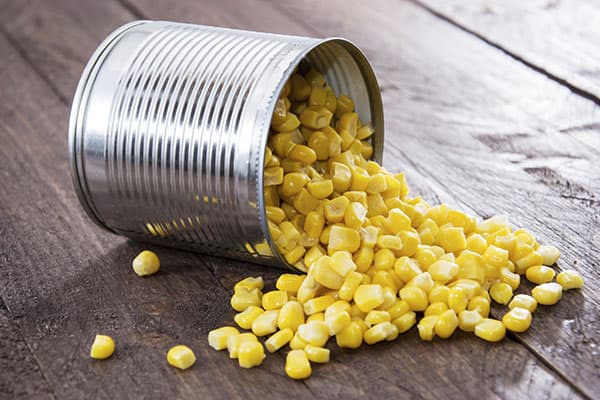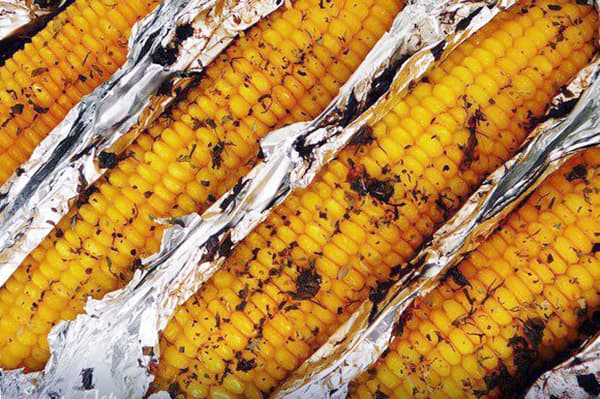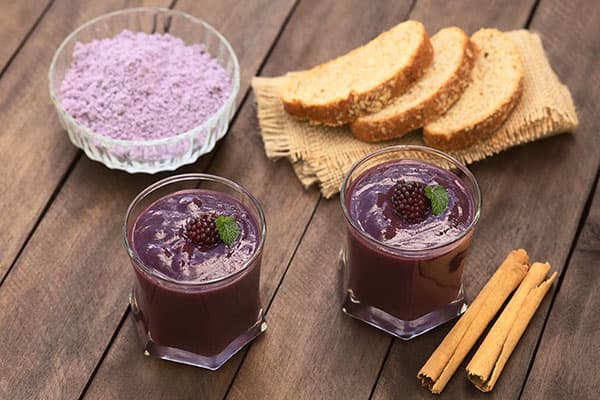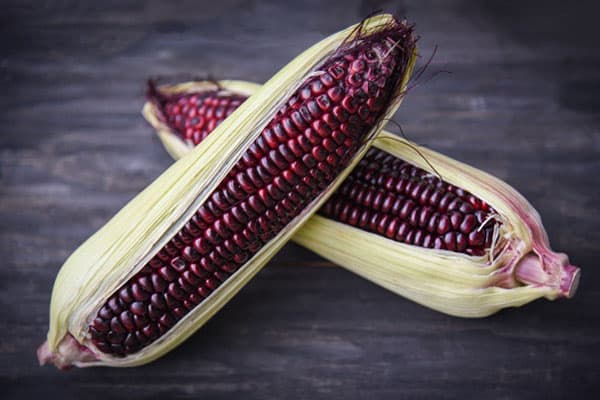Golden grains for your health - the benefits and harms of corn
It is difficult to meet a person who does not like “golden” cobs with a delicate sugary taste. Corn, whose benefits have been known since ancient times, is a real treasure trove of nutrients. This cereal contains more vitamins than rice, buckwheat and pearl barley. It can be nibbled immediately after cooking or added to meat dishes, salads, and baked goods. In this article, you will learn about the beneficial properties and potential harm of corn for the body, as well as in what form it is best to consume it.
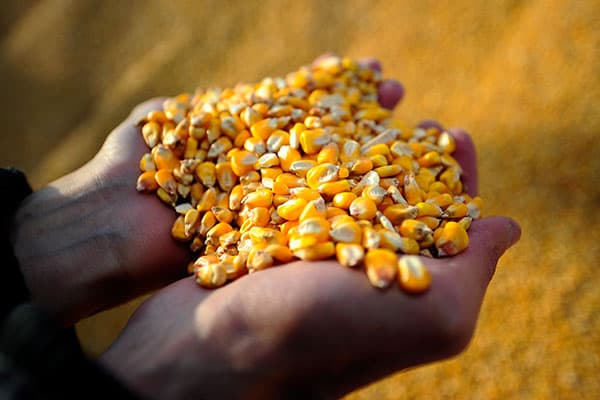
Vitamin and mineral composition
Scientists from Temple University (USA, Pennsylvania) believe that corn was cultivated almost 9 thousand years ago in Mexico. Ancient texts have been preserved that confirm that the Aztecs widely used grain crops in everyday life and medicine.
Why is corn good for your health? It contains a huge amount of vitamins, macro- and microelements that support the proper functioning of internal organs. To replenish the body’s daily need for certain substances, a person only needs to eat one cob per day. The chemical composition of the product is described in more detail in the table below.
Table 1. Substances present in corn kernels
| Name of the substance and % of the daily value in 100 g of corn | Beneficial features | Problems that may arise in the event of a shortage |
|---|---|---|
| Vitamin B1 – 25.3% | Supports healthy metabolism, regulates the nervous system and mood | Memory loss, fatigue, beriberi disease |
| Vitamin B4 – 14.2% | Reduces the level of “bad” cholesterol in the blood and improves fat metabolism, has a biliary effect, and prevents damage to nerve cells | Chronic fatigue and irritability, frequent headaches, high blood pressure, liver and kidney dysfunction |
| Vitamin B5 – 15% | Participates in the synthesis of fatty acids, cholesterol and hemoglobin, stimulates the production of adrenal hormones, has a positive effect on brain function | Chronic fatigue, insomnia, headaches and muscle pain, gastrointestinal diseases |
| Vitamin B6 – 24% | Helps the body properly absorb proteins and fats, removes excess fluid, relieves nausea, prevents muscle spasms | Drowsiness and lethargy, poor appetite, bloating, erosive processes in the oral cavity |
| Vitamin B9 (folic acid) – 6.5% | Stimulates the production of red blood cells, normalizes the menstrual cycle in women, reduces the risk of premature birth and brain pathologies in the fetus | Mood swings, hair loss, anemia, difficult pregnancy |
| Vitamin H (biotin) – 42% | Improves the appearance of skin, nails and hair, increases performance, normalizes blood sugar levels | Sluggish skin, slow hair growth, muscle weakness, poor appetite |
| Potassium – 13.6% | Normalizes heart rate and blood pressure, relieves swelling | General weakness, muscle pain and cramps, blood pressure surges |
| Magnesium – 26% | Supports heart muscle, nervous system and brain health | Chronic fatigue, anxiety, muscle spasms, feeling of a lump in the throat, shortness of breath |
| Silicon – 200% | Increases the strength of bones, cartilage and teeth, enhances the effect of certain vitamins | Weakened immunity, premature aging, musculoskeletal diseases |
| Sulfur – 11.4% | Has antibacterial and antiallergic effects, regulates blood clotting | Chronic fatigue, constipation, weakened immunity |
| Iron – 20.6% | Supports the health of the nervous system, thyroid gland, helps supply tissues and internal organs with oxygen | Anemia, atrophic gastritis, increased fatigue, headaches |
| Selenium – 54.5% | Participates in the formation of many hormones and enzymes, prevents malignant tumors, strengthens the immune system | Infertility in men, muscle weakness, decreased protective functions of the body |
| Chrome – 16% | Normalizes blood sugar levels and reduces cravings for sweets | Deterioration of the body's tolerance to glucose, type 2 diabetes, mood swings, sudden attacks of hunger |
| Zinc – 14.4% | Strengthens the immune system, accelerates tissue regeneration, improves sexual function in men, stimulates collagen synthesis | Frequent colds, poor wound healing, increased irritability, infertility |
The cereal also contains other valuable elements: vitamins A, B2, E, PP, phosphorus, calcium, iodine, cobalt, copper. There are essential amino acids, in particular leucine and tryptophan.
Corn is a very filling product. The reason is the rich content of vegetable protein and dietary fiber. For most people, eating just one cob is enough to stave off hunger for 2-3 hours.
The calorie content of corn is quite high: 100 g of grains contain 325 calories.
Health benefits of corn
The vitamins and minerals listed above, present in grain crops, are well absorbed and have a complex effect on the body. Let's consider the usefulness of the product for different organs and systems.
- For the stomach and intestines
Corn is recommended for nutrition for people suffering from chronic constipation. It has a high content of dietary fiber, which normalizes intestinal motility. A decoction of young corn has a positive effect on the condition of the gastrointestinal mucosa and also removes harmful compounds from the body.
- For liver and kidneys
Vitamins B1, B4, B5 and B6 have a positive effect on liver function, which improve fat metabolism, thereby reducing the load on the main detoxifying organ. With regular use of the product, kidney stones dissolve and inflammatory processes decrease.
- For the heart and blood vessels
Sweet corn increases the elasticity of blood vessels and prevents the formation of atherosclerotic plaques on their walls. The product is especially useful for people with hypertension as it contains optimal amounts of potassium and magnesium.
- For the nervous system
Almost all the vitamins contained in corn support the health of the nervous system and brain. Sweet boiled stigmas can be given to children from 3-4 years old. The product will improve memory and thinking abilities, prevent mood swings and fatigue from intellectual work.
- For the musculoskeletal system
In this regard, corn is practically not inferior to dairy products. Although 100 g contains only 3.4% of the daily calcium requirement, it also contains a lot of silicon and phosphorus.These elements strengthen bone tissue, prevent the destruction of tooth enamel and splitting of nails. Doctors recommend consuming corn for older people to reduce the risk of fractures and other injuries.
- For the hormonal system and metabolism
Thanks to its rich mineral composition, corn normalizes hormonal levels in men and women. In particular, the trace element selenium is involved in the production of thyroid hormones. The functioning of the thyroid gland and a woman’s well-being depend on them. And zinc stimulates the secretion of testosterone, the main male hormone.
Eating corn in reasonable quantities can reduce the risk of developing type 2 diabetes. The grain also helps in the process of losing weight, as it supports healthy metabolism of proteins, fats and carbohydrates.
- For the immune system
Properly cooked cobs increase the body's defenses. And due to the high sulfur content, the grain crop accelerates human recovery from bacterial infections.
Who can eat corn harm?
There is a downside to corn's rich chemical composition. This grain crop takes a long time to digest in the stomach. Therefore, you should not eat it at night or in excessive quantities - more than 2 ears per day. If you ignore this advice, you will experience bloating and a feeling of heaviness.
Corn has the following contraindications for consumption:
- increased blood clotting, the presence of blood clots;
- peptic ulcer and gastritis in the acute stage;
- underweight.
There is no prohibition for pregnant women. On the contrary, while waiting for a baby, the need for vitamins and minerals increases, and corn makes up for their deficiency.In nursing mothers, the grain crop enhances lactation and improves the chemical composition of breast milk.
How does the cooking method affect the benefits of corn for the body?
Which corn will bring more health benefits - boiled, steamed, baked or canned? Let's consider each option.
- Steaming
Corn cooked in a double boiler is the healthiest and most delicate in taste. The steam is hot enough to turn raw cobs soft and juicy, and also improve the digestibility of the product. At the same time, the processing temperature is not as high as when boiling or baking. Consequently, almost all vitamins, macro- and microelements are preserved in the grain crop.
- Cooking
Boiled corn is also good for the body. After heat treatment, most of the vitamins and other substances are retained in its composition due to the dense shell of the grains.
The best taste is obtained by cooking milky corn with cobs and leaves. But it is not recommended to salt the water during the cooking process. Salt will make the finished product tough.
- Baking
In terms of benefits for the body, baked corn occupies an intermediate position between steamed and boiled. But without using oil it turns out a bit dry.
- Conservation
Canned corn still retains macro- and microelements, as well as B vitamins (in particular folic acid), but in smaller quantities than boiled or steamed corn. In addition, the tin contains salt and sugar that are harmful to health along with the main product.
Sometimes manufacturers add sodium benzoate (E211) to canned corn. This substance increases shelf life by causing the death of microbes.However, sodium benzoate is harmful to human health: it provokes allergic reactions, inflammatory processes, and increases the load on the liver.
Purple corn - a unique superfood from America
Recently, an exotic product appeared on the markets of the CIS countries - powder made from purple corn grains. It is mainly used to prepare raw food desserts or added to smoothies, cocktails, juices, and plant-based milk.
Purple corn is grown in the southwestern United States. Externally, the grains are practically no different from the yellow variety. But when boiled, they are tasteless.
Purple corn is considered a superfood due to its high anthocyanin content. They give the product its rich color. Anthocyanins are powerful antioxidants. These substances protect the body's cells from the negative effects of free radicals. Anthocyanins reduce inflammation, reduce the risk of cancer, slow down the aging process, and help a person feel energetic.
Thus, the medicinal properties of corn are beyond doubt. When consumed regularly, this nutritious product makes a person healthier, more beautiful, more productive and emotionally stable. Vitamins from boiled or steamed grains are absorbed much better than from pharmaceutical preparations. Be sure to include corn in your diet and recommend it to your loved ones.


